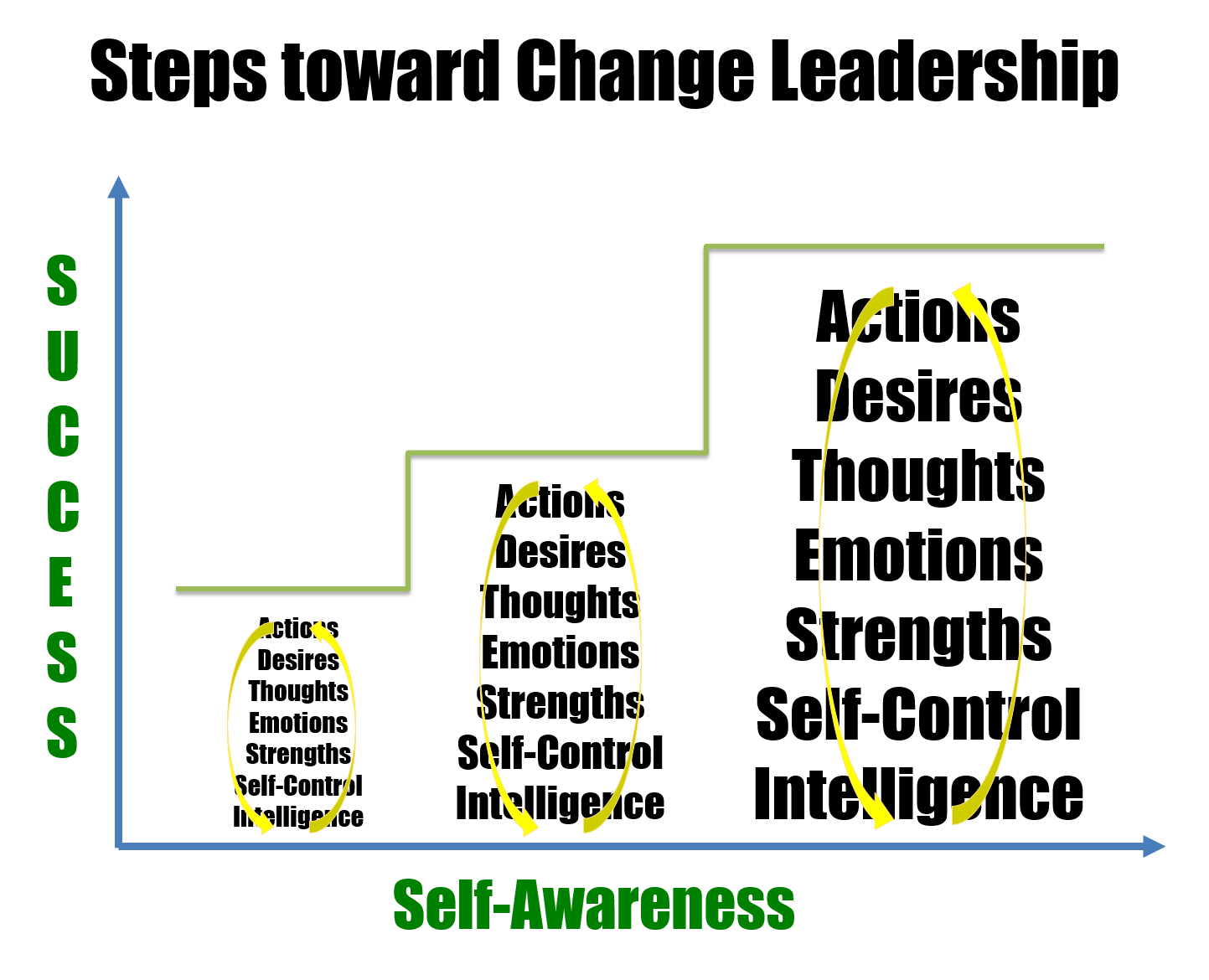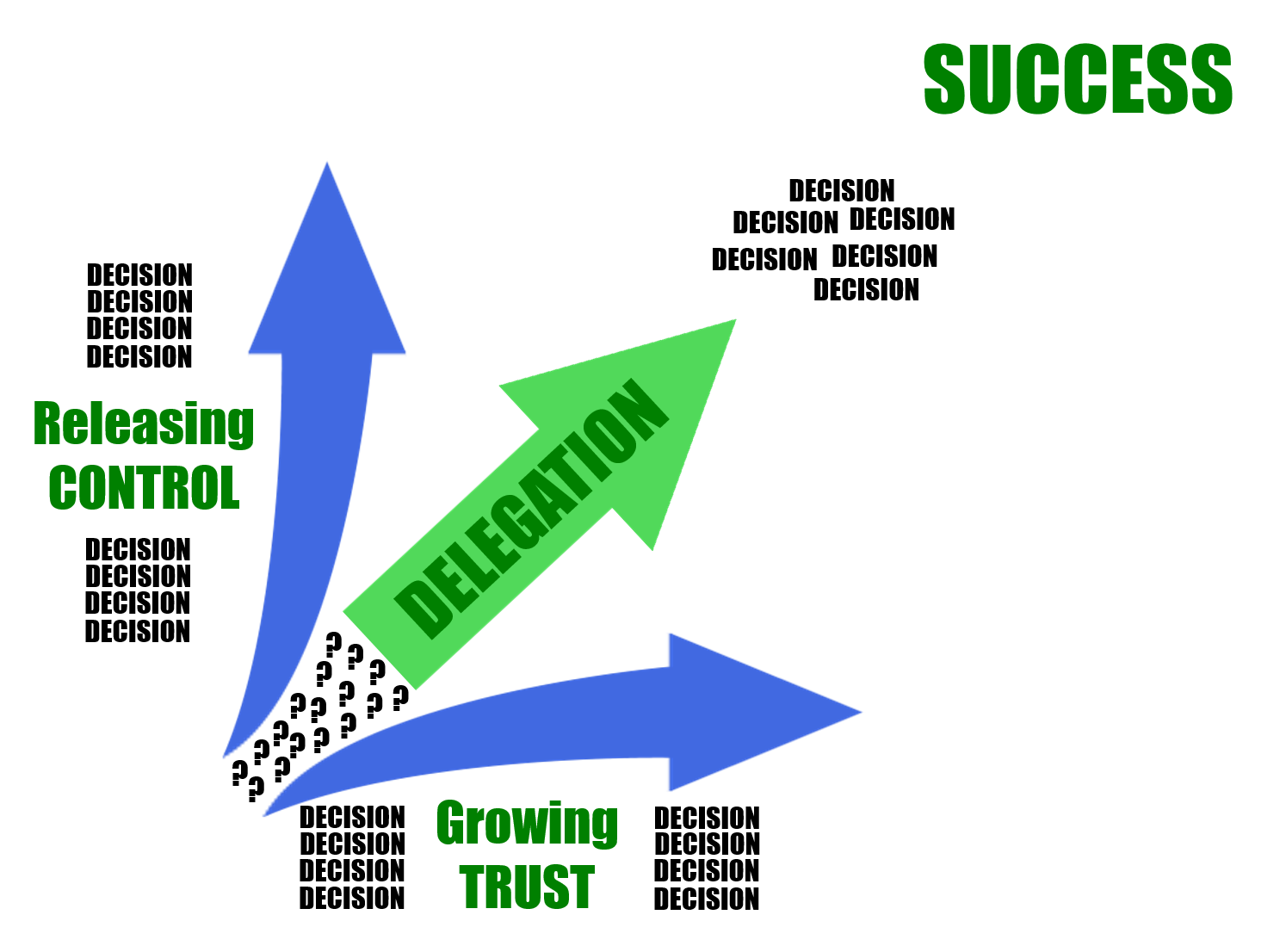|
|
by Rick Baker
On Dec 23, 2013
Business contains only 3 things: People, Process, & Situations.
When it comes to forecasting people's behaviour, place your bet on Situations over People. [We learned this from Mark Weber] Another way of looking at it...When it comes to commenting on people's behaviour, place your blame on Situations not on People.
- Learn how to observe better - make that a life-long goal.
- Learn how to observe people better, with a view to understanding them better - as Stephen Covey taught, Seek First to Understand.
- Learn how to observe situations better, with a view to identifying patterns in real-time and knowing the consequences of those patterns in real-time.
- Learn how to anticipate Situations - that is key to leadership and success.
- Do not set the bar so high people will fail to hurdle it...recognize you and most other people would likely act the same way in the same situation.
- Do not back people into corners. For example, do not ask questions that any reasonable person might answer with a lie maybe a little white lie but nonetheless a lie.
- Do not criticize others: know from personal experience, constructive criticism is an oxymoron.
When it comes to discovering why things are not working, place your attention on People before Process.
- Processes cannot talk on their own behalf. Processes do not explain themselves to People. Processes rely on People to talk to People.
- People-memory is prone to fail. Remember, People are prone to misremember. So, you must help your people improve memory & recall. To do this - get attention, generate interest, tell stories, provide real-life and relevant examples, strive to make your messages stick.
- Provide tools to help strengthen the bond between People and Process. Customize your tools so they fit both your People and your Process. Checklists are terrific tools. 1-Page Tools are terrific tools.
Summing up...
- Anticipate Situations.
- Design Processes that will help People perform better in given Situations.
- Explain that good Process to your People. Then repeat, repeat, repeat.
- Provide tools that help People bond with Process, in Situations.
- Don't blame your People.
by Rick Baker
On Dec 20, 2013
No doubt about it. Emails can get us into trouble...even when we don't intend that outcome.
In the old days, say 20 or 30 years ago, we did not send emails. When we wanted to communicate in writing we wrote letters or memos or notes. I suppose those written communications generated some unexpected troubles for us. But, I do not recall hearing or seeing anyone misinterpret the intent of my messages. Certainly, in the old days, it was rare to witness situations where people received notes and illustrated a surprising/unexpected reaction. For example - I do not recall people showing me notes, explaining how troubled they were, and later discovering the intent of the note was misunderstood. Situations like that were not commonplace.
To be clear...in those old days, from time to time, people got really angry when I sent them notes. But, I was not surprised to observe those reactions because they were consistent with the intent behind my notes. [I am not saying this with pride...just stating a cold, hard fact of my communication history.] Similarly, I was annoyed or angered by notes I received and the annoyance or anger was justified [or, at least, not surprising] because the senders knew the notes' contents had the potential to generate that sort of reaction.
Nowadays, it is common to see or hear about people receiving emails and being 'put off' then, later, discovering the sender had no intent to generate such reaction. In fact, the sender is surprised to find the message was misunderstood and off-putting. Or, perhaps you observe an increasing number of situations like this: someone shows you an email and says, "Isn't this outrageous", then you look at the email and see little evidence of anything outrageous.
I find myself in that sort of situation regularly.
Why?
Here are some thoughts...
- People are receiving much more written communication now...perhaps, an information overload [maybe even Future Shock] is causing people to be less open-minded than they were a generation ago. Perhaps less-open minds are breeding intolerance or some other aspect of negativity that is injuring communication.
- Many people take shortcuts when they write email. For example, many people do not use an upper-case letters when they type the first letters of people's names. Perhaps, this informality deprives the reader of the pleasure of seeing his or her name properly written and that triggers an annoyance, an annoyance which escalates.
- More people are sending written messages now than ever before. Perhaps, the nuances of clarity have been lost in the masses.
- Of course, we know many people are deluding themselves into believing they are too busy. This causes them to do whatever they can to cut corners. So corners of communication are cut. Perhaps In Search of Brevity is an effectiveness-sacrificing attempt at efficiency.
The good news is we have identified the problem.
We can foresee the annoyed-by-email situations.
We can expect our emails will get us into unexpected troubles. So, we can troubleshoot. We can check our emails before we press the SEND button. And, we can take a little extra time to improve our email communications so they cause less unexpected trouble.
We can improve communication and annoy fewer people.
We can enjoy more effective communication.
by Rick Baker
On Dec 18, 2013
Premise: It is better to think about business as a package of understandable & definable Tasks.
Premise: All Tasks can be defined and someone, sometime ought to get that done.
Premise: When we build business Task by Task we uncover numerous opportunities to apply the 80/20 Rule.,,,i.e., that's Zero-based business.
Premise: Zero-based businesses are to business what Zero-based budgets are to budgets and, at least once in a while both need to be done.
Premise: When we understand Processes in terms of their constituent Tasks we actually understand Processes...and can innovate and improve them.
Premise: When we understand Processes & their Tasks we can communicate better...and that's efficient and effective.
Here are some seek-simple steps...




by Rick Baker
On Nov 15, 2013
If you want to lead change and influence others to help you achieve the success you desire, consider these things:
- Your Intelligence - This is a tough one! How can you be objective? How can you know whether or not you have the intelligence required to be a successful leader? Here's a few suggestions: (1) view this as a life-long process, work at self-knowledge, & figure out how to measure accurately [then you will be able to apply these things to understanding others], (2) ask for input from others then consider it from different perspectives [as examples, subjectively and objectively], (3) have at least one mentor...intelligence is not fixed - it is something you can expand if you work at it.
- Your Self-Control - There are two dimensions: (1) short-term control over emotions, feelings, thoughts, & actions and (2) 'Grit', the ability to control thoughts and actions so they align with personal Values, Vision, Rules, & Goals. 'Grit', as defined here, is the thing in you that determines whether or not you can illustrate Integrity to others and whether or not you have the conviction required to achieve your Desires.
- Your Emotions - Another tough one! Start by defining Emotions and how they differ from feelings, moods, and other mind states. Seek help from others who can observe you in a variety of Situations: under heavy workload, under stress, under assault [for example, while being criticized]. Assessments can help identify your weaknesses. Major weaknesses must be corrected. If they are not you will violate sacred things like Integrity and your stated Values...violations will destroy followers' Trust in a blink.
- Your Actions - and the Actions you must do to deliver value, lead others, inspire others, influence others, and help others.
Dedicate at least one full, uninterrupted day each year to measure your progress.
When you do this you will observe progress steps that look something like this...

by Rick Baker
On Nov 13, 2013
Delegation is the decision-making engine of business.
The Delegation engine is fuelled by Influence.
Influence is built on a track record of releasing control and growing trust...all laced together, consistently, with Vision, Values, Rules, Goals, & Measures...all making best use of Talents & Strengths...and, together, learning lessons from errors made along the road to Success.

And the key to successful Delegation: make Decisions around How you will go about Releasing Control and How you will go about Growing Trust. For most people and most businesses, these things do not just happen naturally. They only happen after a great deal of forethought, self-analysis, and good planning.
Practice the 80% Rule: If someone else can do the Task 80% as well as you can do it then Delegate.
And remember...
Constructive Criticism is an Oxymoron...so choose to celebrate lessons learned from failures rather than criticizing others' errors.
by Rick Baker
On Nov 6, 2013
Thought Tweet #863 People are more inclined to follow than to lead. This can be painfully clear when egos are unleashed.
The Thinking Behind The Tweet
One of the most graphic examples is mob behaviour. A few mob leaders can inspire destruction and pillaging from many...just consider Vancouver's Stanley Cup embarrassment. As Mark Weber says, "If the bet is between People and the Situation, bet on the Situation". [paraphrased]
Betting on Situations is, in essence, betting on people following.
And there's that Spirited philosophy - "Business Contains Only 3 Things: People, Process, & Situations"
To accomplish their dreams, leaders must remember these related things:
Be the role model you want emulated
Anticipate and construct Situations
|
|